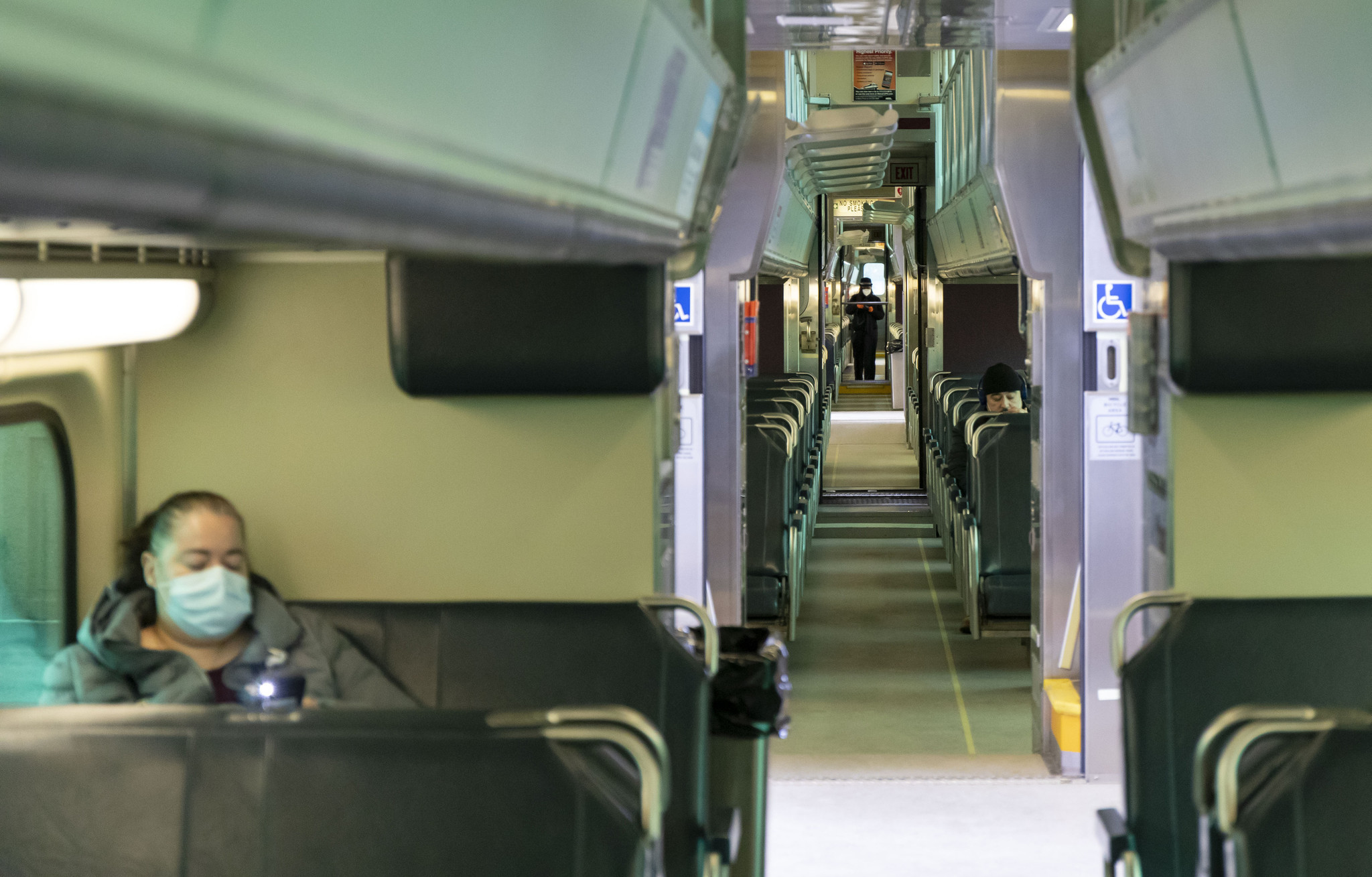Did You Know?
Advocates call for transit agencies to prioritize racial equity in COVID-19 response

If Chicago’s transit agencies are going to recover from the devastating effects of COVID-19, they need to include riders and other Chicagoland residents in their decision making.
CTA ridership is down more than 80 percent from typical April ridership. Pace Suburban Bus ridership is down 68 percent. Metra ridership is down 97 percent – combining for an 83 percent decline system wide.
Sales tax and gas tax revenues – two of the agencies’ largest sources of operating and capital dollars – are way down and expected to take a long time to recover. The emergency assistance for transit included in the CARES Act will help, but it’s not nearly enough.
CALLS FOR TRANSPARENCY AND RACIAL EQUITY
Active Trans joined seven other advocacy and civic organizations in a letter to the boards of the Chicago region’s transit agencies – RTA, CTA, Metra, and Pace – about the future of Chicago transit during and after the COVID-19 pandemic.
The coalition calls on RTA, CTA, Metra, and Pace to establish an equitable, clear, and transparent process to engage stakeholders and the public in the planning process for the regional transit system’s response to COVID-19.
Other signers include Center for Neighborhood Technology, Elevated Chicago, Illinois Environmental Council, Metropolitan Planning Council, Respiratory Health Association, Shared-Use Mobility Center, and Sierra Club Illinois.
The letter was read into the official record at Thursday’s RTA virtual board meeting during the public comment period. RTA Chairman Kirk Dillard thanked the groups for its “comprehensive and inclusive” comments.
The coalition says COVID-19 forces us to rethink how we view public transit and reevaluate our regional goals, with racial equity and public health outcomes at the center.
Ridership cannot and should not be the primary metric for evaluation. Transit is a public good that is essential to sustaining and reviving our regional economy – even if far fewer people are riding. Low-income residents who rely on transit to get around during and after this crisis, many of whom are Black and Brown, provide services everyone depends on.
COVID-19 RESPONSE STRATEGIES
Following are some of the immediate, near-term, and mid-term strategies for discussion and cooperation. The coalition suggests setting up working groups with civic, academic, business, and community representation around these and other topics as soon as possible.
- Maintain critical mass transit routes: Service boards should work with public health officials to identify key routes to essential services (healthcare, grocery stores, etc.) and, if necessary, increase service to allow for social distancing on these routes. Given the racial disparities in COVID-19 cases and deaths, racial equity must be prioritized in any service changes.
- Protect frontline transit workers, many of whom are people of color being hit hard by COVID-19: In cooperation with transit operators, improve the safety of mass transit workforce by providing masks and other necessary PPE, making tests available for workers who need them, identifying and addressing air quality issues related to filtration and ventilation, providing hazard pay to maintain workforce, etc.
- Apply a racial equity lens and provide transparency on stimulus spending: Make plans and criteria for spending federal stimulus dollars publicly available and open for public comment.
- Establish robust community engagement principles and processes: In order to recover from this crisis and generate community support for transit, we need to go beyond providing information and soliciting public comment, and fully and meaningfully engage riders and the community at large in public transportation decision-making.
You can support the fight to protect public transit during and after the COVID-19 pandemic by becoming an Active Trans member or renewing your membership today. You can also make a one-time donation.
Image courtesy Brian Cassella / Chicago Tribune
Make a Donation
Your tax-deductible donation supports the important work that Active Trans does throughout the region
